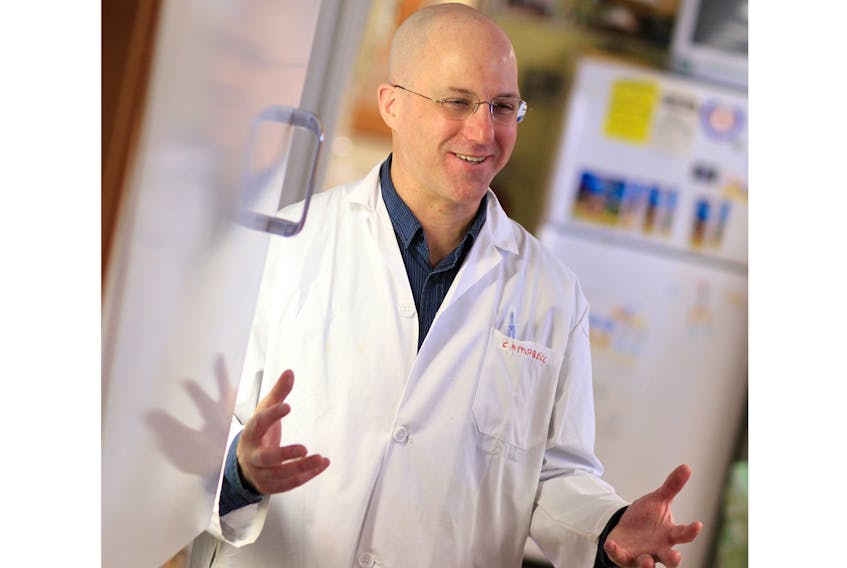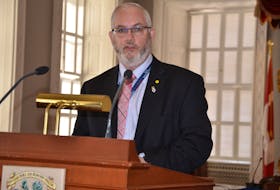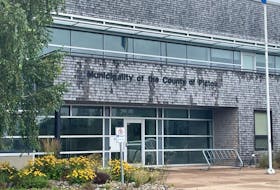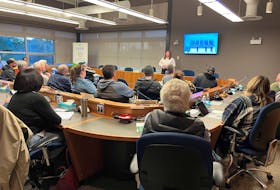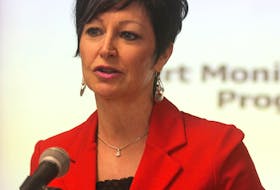SACKVILLE, N.B. – Mount Allison University biology professor Dr. Douglas Campbell has been renewed as the Canada Research Chair (CRC) in Phytoplankton Ecophysiology.
The federal program provides funding for exceptional researchers at Canadian universities.
Campbell’s latest appointment is for a Tier 1 Chair, which is for seven years and comes with over $1.4 million in research funding over that time period.
A microbiologist, Campbell has been a Canada Research Chair since 2002, studying how different species of phytoplankton — microscopic marine plant organisms — respond to environmental change.
“I’m honoured and humbled to be renewed as a Canada Research Chair,” says Campbell. “This kind of support helps give my research program a longer perspective and allows my team, including Mount Allison students, each to better focus on the work they are doing in the lab and in the field.”
“Dr. Doug Campbell is one of Mount Allison’s most distinguished scientists and is known globally for his expertise in phytoplankton,” says Dr. Jeff Ollerhead, Mount Allison University provost and vice-president, academic and research. “On behalf of the entire university community, I wish to congratulate him on his reappointment as a Canada Research Chair.”
Campbell is currently working on a number of research projects with collaborators from around the world. While on sabbatical this past term, he completed a fellowship at the Centrum Algatech, a microbiology institute affiliated with the Czech Academy of Science. He is continuing this research partnership on campus with Dr. Amanda Cockshutt, Mount Allison biochemist and dean of science, exploring how phytoplankton grow and adapt to lower oxygen levels, caused by changes in ocean temperatures.
Another project he is involved in looks at biofilms of microorganisms, in the Bay of Fundy and how these support mudflat ecosystems, in collaboration with Mount Allison biologist Dr. Diana Hamilton and researchers at University of New Brunswick, University of Nantes (France), and Cardiff University in Wales.
His lab is also looking at how phytoplankton and bacteria co-operate to detoxify their environment and is working with Sackville’s EOS-Energy to engage in community science outreach to collect water samples to understand sources of contamination along New Brunswick’s Northumberland Strait coastline.
Campbell is now back on campus where he is continuing his research and teaching courses in microbiology, including an environmental project course. He will be part of a team of Mount Allison faculty and staff who will team teach a new class, operational data science, being offered this spring.
“It’s exciting to work with not only our research team but also student researchers, as well as community members with respect to the EOS-Energy work,” says Campbell. “Support from programs such as the CRC helps to provide resources and equipment for these kinds of research projects.”
Over the next year, Campbell will also host researchers from across Canada, France, and the U.K. in his lab, located in Mount Allison’s new life sciences research centre.
RELATED:
Katherine Reiss named Mount Allison University’s 55th Rhodes Scholar
Mount Allison research professor Thaddeus Holownia inducted into the Royal Society of Canada

